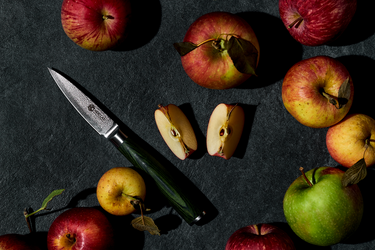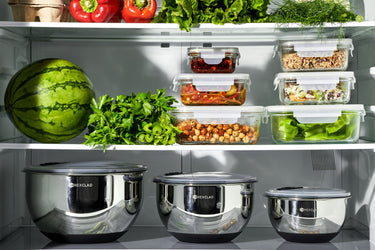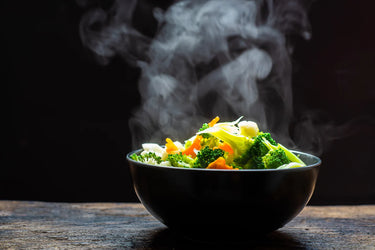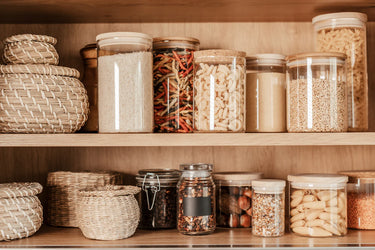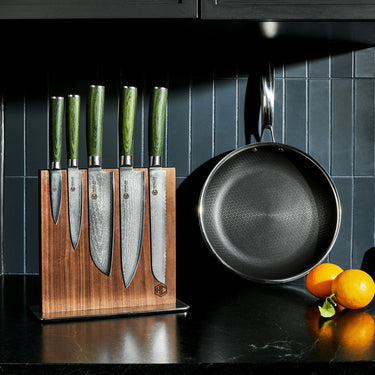How To Dispose of Cooking Oil Safely and Effectively

Any home cook or professional chef knows how important oil is for creating a delicious dish, but fewer of us know how to responsibly get rid of that oil after the fact.
The first step you can take is to minimize the amount of oil that you have to use when you cook — and a great way to accomplish this is by using non-stick pans.
You do still have to use some oil when dealing with non-stick cookware, but you can get away with much less while still achieving a fantastic final result. This way, your food will be less greasy, and you’ll have less oil to sort out. Similarly, rather than deep frying your food, you can use an air fryer.
Now, let’s get into what HexCladand scientists recommend you should and shouldn’t do with your leftover cooking oil.
Can You Pour Cooking Oil Down the Drain?
We understand why you’d want to use nothing more than a paper towel and the kitchen sink to get rid of cooking oil. However, this can wreak havoc on sewer systems and cause all kinds of blockages.
Does Cooking Oil Clog Drains?
Unless you want to have your plumber on speed dial, we highly recommend not putting cooking oil into your sink drains. If you do this, it will inevitably cause backups and build-ups, which are two things that no one wants to deal with.
Keep in mind that the oil is incompatible with any drain, so putting it in the toilet or the shower won’t work, either. Following up the oil with hot water isn’t effective either, unfortunately.
Can Cooking Oil Go in the Garbage Disposal?
Even if you have a garbage disposal, pouring in oil is still a no-go. In this case, the oil can make the mechanism slippery and weaken the blades.
How Should You Dispose of Cooking Oil?
We’ve covered the do-nots of getting rid of your cooking oil, so let’s get into how you can dispose of your oil after you’re done with it.
Some methods involve reuse, while others speak to how to get rid of it once and for all. Which technique(s) you choose to employ depends on what you need.
Store It in Glass Jars and Reuse It
Let’s say you made fried chicken, and you’re now left with a ton of perfectly good vegetable oil from deep frying.
This is a perfect opportunity to engage in some cooking oil recycling. If you regularly have mason jars and other glass receptacles lying around waiting for your next DIY project, this one’s for you.
After giving the oil plenty of time to cool down and become safe to handle, it’s time to do a bit of maintenance before putting it in the jar. Clean up the oil by straining it to get rid of any remaining food scraps, which could easily make the oil go bad.
Many people like to use coffee filters or cheesecloth to avoid food build-up. You want to make sure that it’s completely free of solid waste and that it’s just the oil remaining.
If there is any dark residue left over in the oil, you should not reuse it. The same goes for if the oil smells strange. While it’s always a good idea to keep our hazardous waste output to a minimum, you don’t want to potentially risk your own health in the process. If you aren’t totally sure about it, it’s better to just use new oil.
Now, just tightly seal the jars, and you’re all set. You should be able to reuse the oil a few times, significantly cutting down on food waste. Not only is this better for the environment, but it also saves you money in the long run.
Add the Cooking Oil to a Container and Throw It Away
Although we would all prefer the technique of reusing cooking oil, there are occasions where it simply is not a possibility. Perhaps there are too many food particles left behind in the used oil, or you are worried that it has become spoiled. Regardless of why you no longer see reuse as an option, you are now looking for a cooking oil disposal method that won’t harm your pipes or the environment.
While many of us enjoy fried food from time to time, and making them at home is often a much more economical option, grease disposal is a decidedly less glamorous part of the process. The first thing you need to do with the used cooking oil is to let the oil cool down. You can’t safely dispose of hot oil, so allowing it to reach room temperature is crucial.
Once the frying oil has cooled completely, carefully pour it into an airtight container. A milk carton or another plastic container will work just fine, but make sure that it is securely closed.
From there, you can either put it directly into the garbage or you can take one extra step.
Writing a brief note on the container detailing what’s inside can be helpful for sanitation workers, just to make sure nothing gets miscategorized. Writing something like “cooking oil, not recyclable” in sharpie can help in the long run without taking much effort on your part.
Freeze It
It might sound odd to put your oil in the freezer, but the truth is that taking this extra step can help extend cooking oil’s lifespan significantly. There are multiple different ways to freeze your oil, so decide which one works best for you. First, you can freeze it while it is still in its original container if you haven’t used it yet but are worried about it expiring.
You can also put anything from olive oil to vegetable oil into a sealed plastic bag or another sealable container and put it in the freezer from there. Make sure not to fill either the bag or the container up all the way, because it will expand a bit as it freezes.
Even if you have a large amount of oil to deal with, only fill up the container to about three-quarters full.
If you want pre-proportioned amounts of oil that you can use at any time, break out the ice trays and get to pouring. You can also include various aromatics and herbs like rosemary, thyme, and more to remove steps from the process later on. When you’re ready to cook with the oil, simply place a cube in the pan and allow it to heat up on its own.
Go to a Recycling Center
You aren’t the only one who can get new life out of your used cooking oil. You can also do a convenient drop-off at your local oil recycling center. There, they can treat it and turn it into biodiesel or other forms of biofuel.
This is significantly better for the environment, and you can have peace of mind knowing that you aren’t harming your pipes or any other part of your home.
Is It Safe To Pour Out Cooking Oil in Your Yard?
Do not pour cooking oil into your yard. We respect your desire to deep fry your lawn, but we have to advise against it.
Doing this can both attract wildlife and harm it, and it’ll likely find its way into the sewer systems anyway.
The Bottom Line
Disposing of cooking oil appropriately can be a bit of a hassle, but doing so mindfully can help to save the environment, your drains, and your wallet.
Sources:
Don't Put Fats, Oils and Grease Down the Drain | Calaveras County Water District
Alternative Fuels Data Center: Biodiesel Production and Distribution | U.S. Department of Energy
